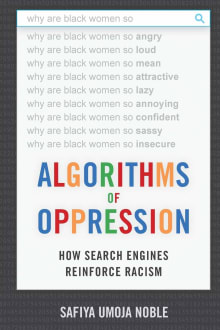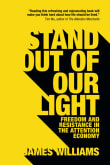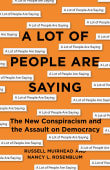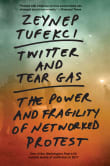Algorithms of Oppression

Book description
A revealing look at how negative biases against women of color are embedded in search engine results and algorithms
Run a Google search for "black girls"-what will you find? "Big Booty" and other sexually explicit terms are likely to come up as top search terms. But, if you type in…
- Coming soon!
Why read it?
5 authors picked Algorithms of Oppression as one of their favorite books. Why do they recommend it?

I rarely think about why I see what I see online. Yes, I know algorithms had something to do with it, but they’re just algebra on steroids, right? Well, not so fast!
This book opened my eyes to how and why bias – in this case, racial bias – shows up online and what we can do about it. I learned a lot about the intricate connections between our online lives and our real ones.
From Ellen's list on social media’s impact on us.

A book that established the clear link between algorithms and various forms of discrimination.
In particular, the empirical material marshalled here is impressive, which overshadows the relative lack of conceptual depth. As one of the first books on the subject matter, this is definitely a must read for everyone interested in the ethics of AI, as it started a necessary debate about the nexus between race and technology.
From Arshin's list on future technologies and the ethics of AI.

Unlike Herman and Chomsky, who primarily focus on propaganda over broadcast media, Noble focuses explicitly on how digital media platforms like Google are coded—in their very algorithms—to promote bias and discrimination. While it’s not explicitly about propaganda or disinformation, the book has been critical in building my understanding of how the biggest tech firms curate and prioritize dangerous, hateful, and misleading information. Noble’s book has also helped me to make sense of the deeper, hugely problematic, story behind how and why digital media platforms allow for nefarious targeting of marginalized communities.
From Samuel's list on helping you navigate the disinformation deluge.

The online world doesn’t just hold our attention, it also shapes our beliefs. Safiya Noble’s Algorithms of Oppression documents the disturbing ways in which digital technologies reinforce racism. Even a simple Google search isn’t free from bias, often returning straightforwardly racist stereotypes as part of its auto-complete function. The image results are even more shocking. For a long time, Google’s motto was “Don't be evil.” It’s hard to take that seriously after reading this book.
From James' list on how technology is ruining everything.

Noble’s book changed the way I understood how online spaces—from simple searches to recommendation systems—shape not just what we know, but also the kinds of values, beliefs, and norms we bring to our engagements with the world. And as Noble argues, they do so under the guise of being “neutral,” which makes it even more important for people to understand how those online ecosystems produce racist, dehumanizing, or other kinds of exclusionary results. An absolutely essential read.
From Cynthia's list on radicalization and extremism.
Want books like Algorithms of Oppression?
Our community of 12,000+ authors has personally recommended 100 books like Algorithms of Oppression.























